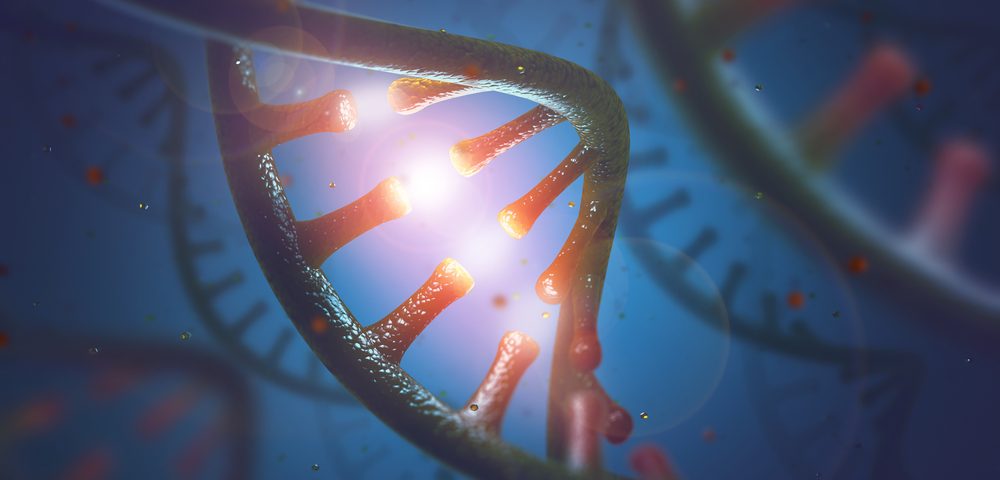Endometriosis and endometrial cancer have common genetic causes, according to new research.
The study, “Genetic overlap between endometriosis and endometrial cancer: evidence from cross‐disease genetic correlation and GWAS meta‐analyses,” appeared in the journal Cancer Medicine.
Both endometriosis and endometrial cancer have a genetic component, with genome-wide association studies (GWAS) identifying single nucleotide polymorphisms (SNPs) — differences in a single DNA building block, called a nucleotide — associated with either disease.
Endometriosis and endometrial cancer may be linked, as suggested by the fact that higher levels of estrogen increase the risk for both diseases, which, in turn, is lessened with treatments such as contraceptive pills and hormonal therapies.
Moreover, both disorders correlate with greater risk for uterine fibroids and ovarian cancer. Further suggesting the link, cancer-related genetic changes, including dysregulation of genes, have been reported in endometriosis.
Epidemiological studies have led to conflicting data regarding this potential association, which may have been due to small sample sizes, underdiagnosis and misdiagnosis of endometriosis, and inability to adjust for variables such as oral contraceptives, the scientists said.
As such, they conducted a GWAS, using separate datasets for endometriosis and endometrial cancer to study the extent of a common genetic cause for both diseases. The team subsequently combined the datasets in a meta‐analysis – a statistical study that combines the results of various studies — to find genetic loci, or specific spots in chromosomes, potentially associated with risk for both disorders.
In total, the datasets for endometriosis included 3,194 cases and 5,330 controls, while those for endometrial cancer had 2,057 cases and 3,866 controls. Results of the meta‐analysis were compared with those from a dataset including 4,402 endometrial cancer cases and 28,758 controls.
The results revealed the presence of weak to moderate, but significant, genetic overlap between the diseases, as well as significant SNP pleiotropy, which refers to disease-associated SNPs correlating with variation in gene expression and/or DNA methylation — the addition of a methyl chemical group to DNA, regulating gene expression – in both disorders.
Thirteen distinct loci were associated with the diseases, with one locus — SNP rs2475335 — located within the PTPRD gene, associated at a significant level. PTPRD is a commonly inactivated gene across different types of cancer. Deletions and mutations in this gene have been detected in numerous tumor types, including endometrial cancer. The PTPRD protein regulates the activation of STAT3, a transcription factor — proteins that control gene expression — previously implicated in both endometriosis and endometrial cancer.
The other identified risk loci contain candidate genes such as SKAP1, associated with ovarian cancer, potentially relevant as causes and/or treatment targets of endometriosis and endometrial cancer, the investigators said.
“Our genetic study indicates that endometriosis and endometrial cancer have a moderate, but significant, shared genetic etiology,” the researchers said. Studies are now needed to better understand how the identified risk loci affect both diseases, the team stated.
“Our genetic correlation analysis supports recent large epidemiological studies indicating an increased risk of endometrial cancer in women previously diagnosed with endometriosis,” they said.

